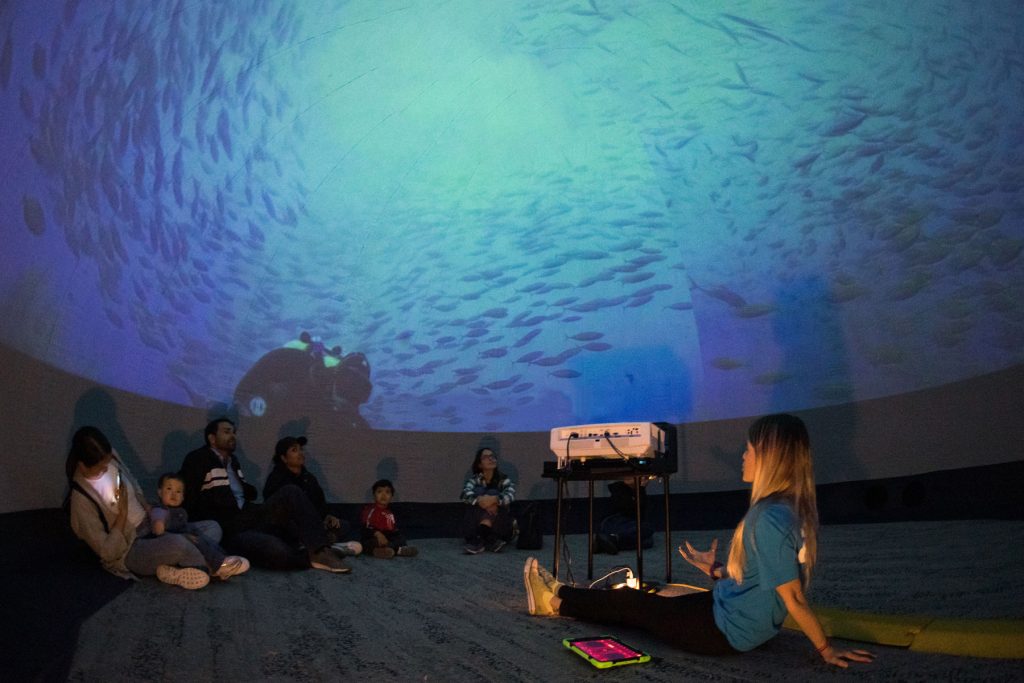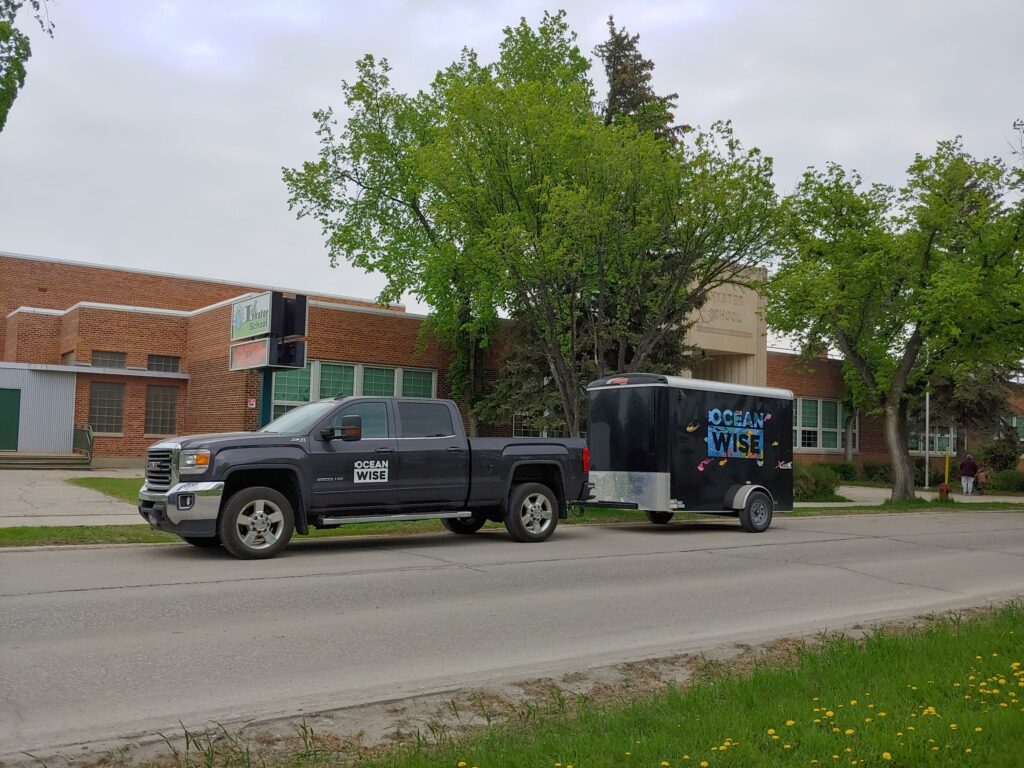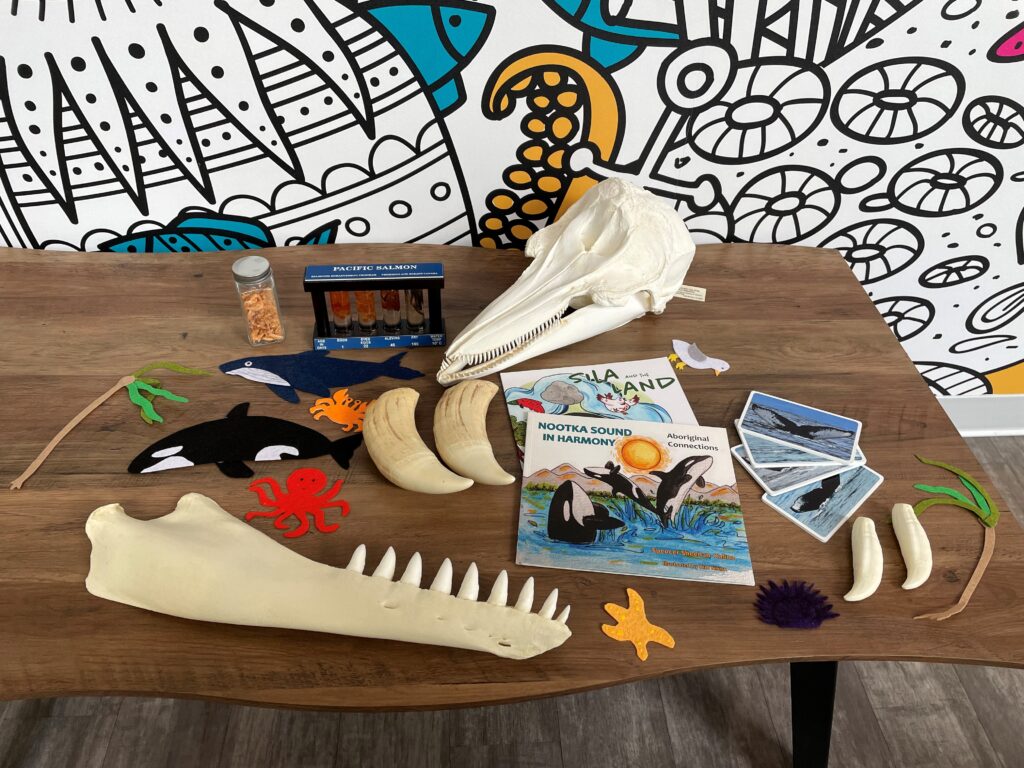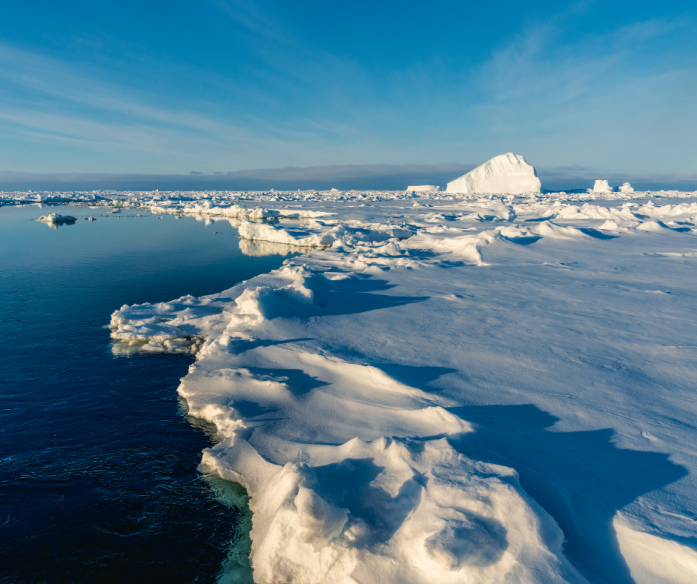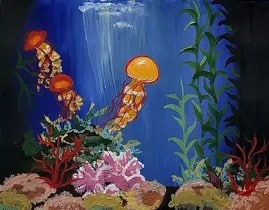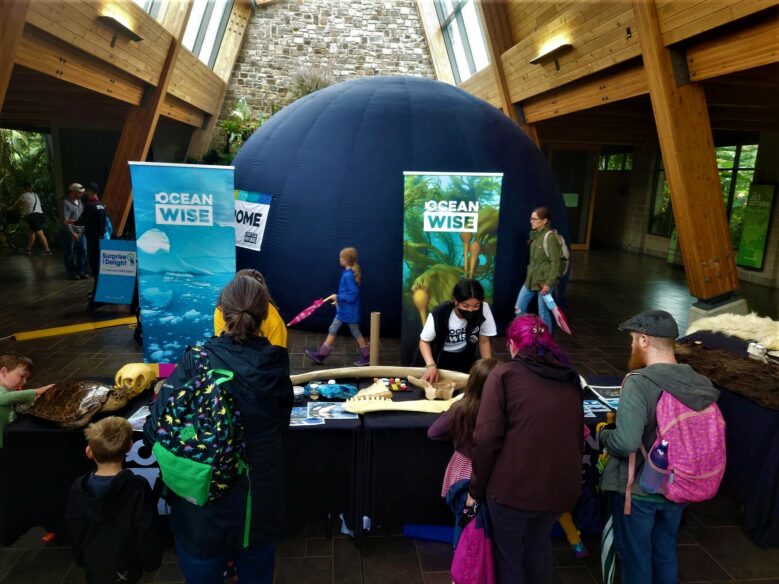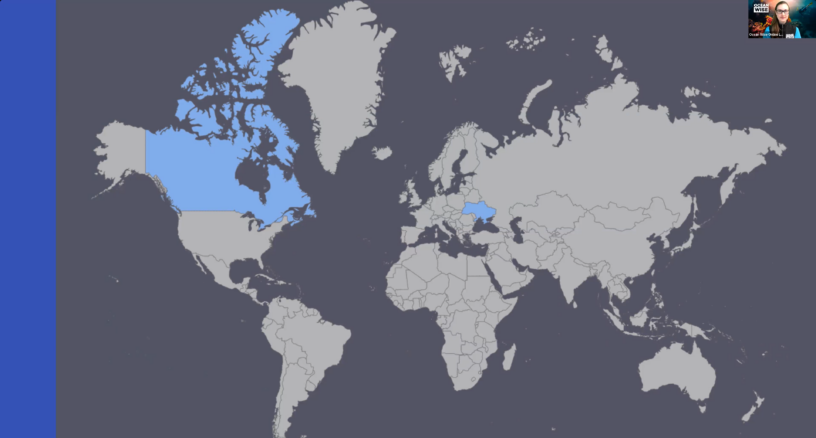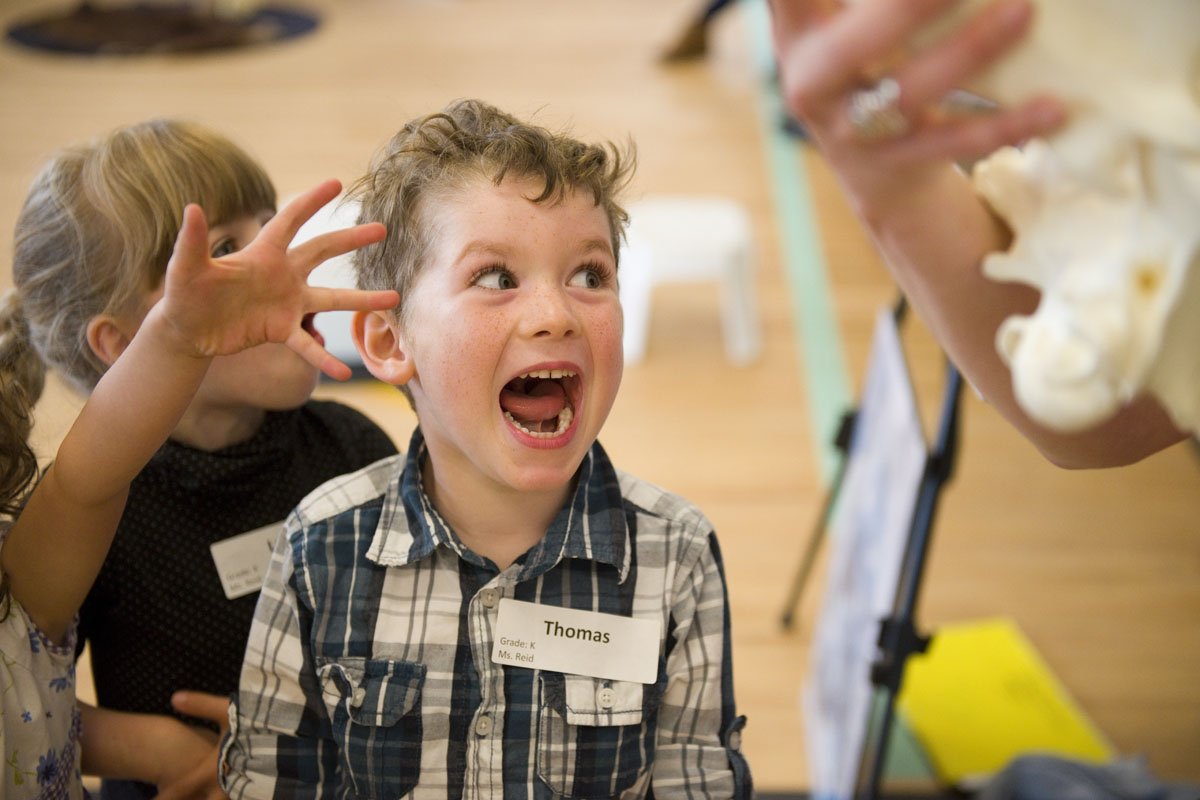
Kids Ask the Darndest Questions (about Marine Life)
Every year, the AquaVan brings mobile aquariums into hundreds of classrooms across Canada. Understandably, the 18,000 students we speak with annually have questions about the animals they’re meeting, like urchins, sea stars, crabs, anemones, and sea cucumbers. Most questions we field are pretty straightforward and we have the answer at the ready. But sometimes they’re not, which is where AquaVan’s little blue book comes in. This book keeps track of all the cute, funny or just plain weird questions we get.
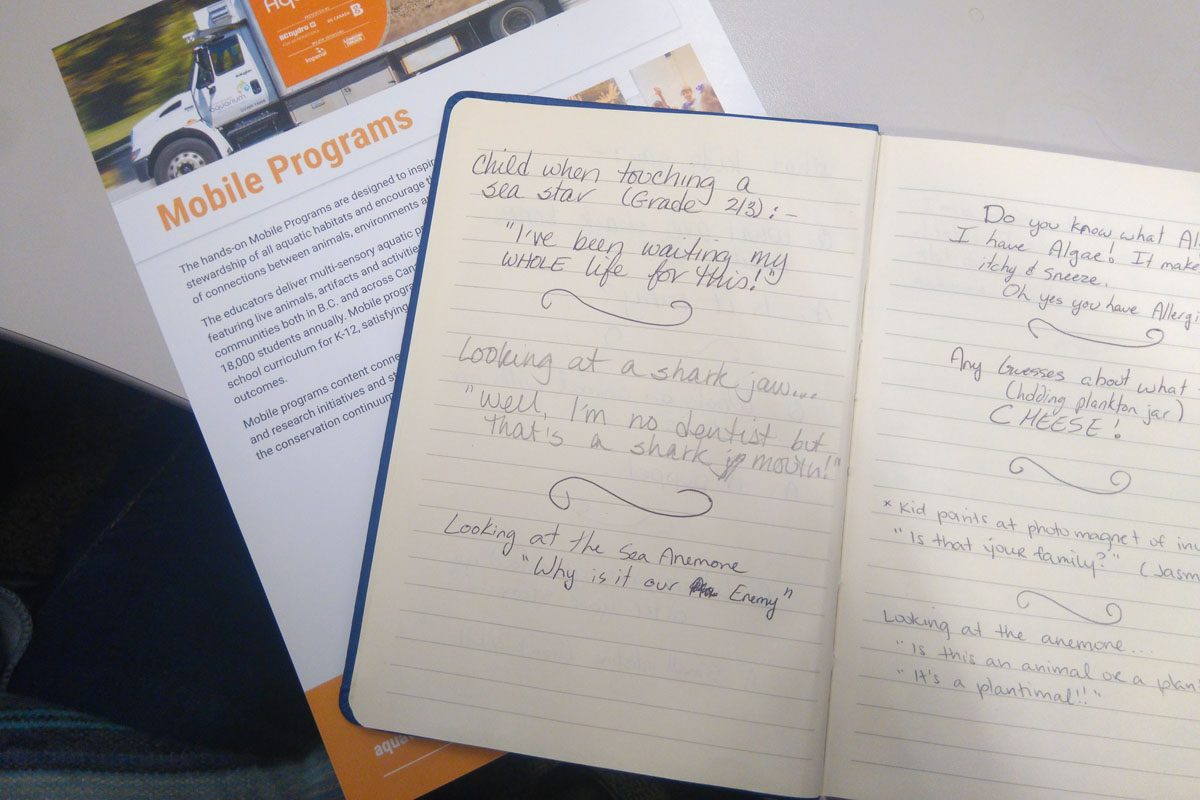
The most common questions revolve around food. For instance, how does a sea star eat? Watching kids pretend to eject their stomachs and digest their food like a sea star never fails to make the teachers laugh. After telling a kindergarten class about the way sea anemones sting their food, I asked the room if there were any more questions about anemones. A hand slowly went up and the child asked: “How come this animal is our enemy?” Um…
Talking about food invariably leads to talking about poop. Scat always opens great conversations about what we can learn by taking a close look at something we might find icky. We get to look at a sample of sea lion scat and talk about the research conducted at the Vancouver Aquarium. This often leads to a discussion about how answering one question leads to more questions — just like in class, or the lab.
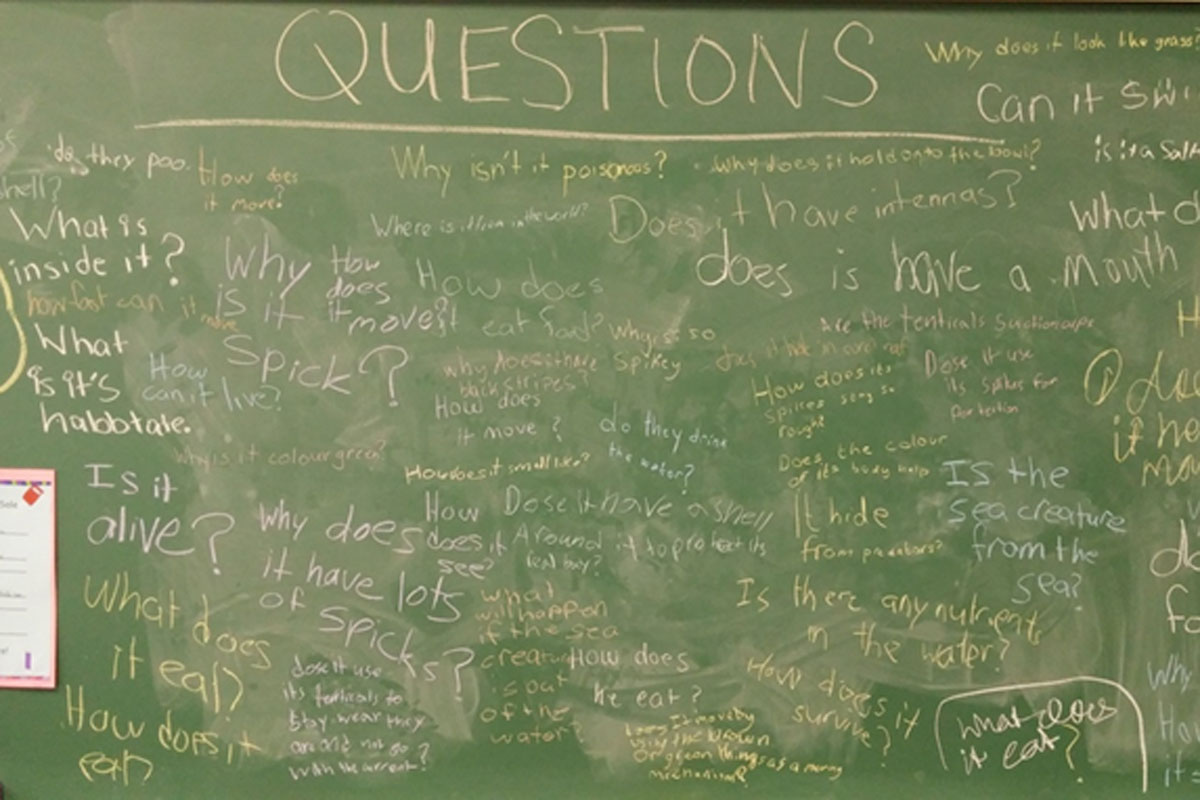
Sometimes students ask questions that haven’t yet been answered by science. For instance, can a dolphin learn to speak to a killer whale? In this situation, we share what we know on the subject, that dolphins can learn to repeat a series of clicks from a human, and then we encourage the kids to make guesses or head to the library themselves. What would you have to know to answer that question? How could you find those answers? Do you think you could be the one to answer that question?
The most inspiring part about these interactions is realizing how much more there is to know about the ocean. So many times we hear questions that we ourselves would never think to ask, which means going back the books, collecting questions and answers that expand our own knowledge. Basically, these kids keep us curious. However, my personal favourite question will always be: will you come back soon?
Tamara Loney is an Aquavan Coordinator.
Ocean Wise Education Institute has several arms, including Mobile Programs which runs the Aquavan. We inspire the stewardship of all aquatic environments and encourage the discovery of connections between animals, environments, and humans.
In January and February, Aquavan is visiting schools around the Lower Mainland. In March, we’ll head to Fraser Valley or Vancouver Island (TBD). In April, we visit the Sea-to-Sky region before heading to Calgary. In June, our programs return to Courtenay and Comox area on Vancouver Island.
Posted January 12, 2018 by Ocean Wise
